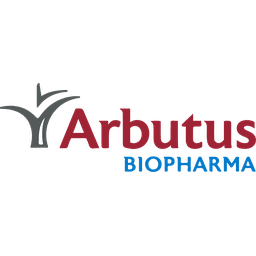
Ira Spector, Ph.D., CEO at SFA Therapeutics
SFA Therapeutics Has Big Vision to Transform Medicine
Philadelphia-based SFA Therapeutics has a big vision. The company, CEO and co-founder Ira Spector, Ph.D., tells BioBuzz, “wants to change the way medicine is practiced in the treatment of autoimmune disease.”
Spector notes that the current standard-of-care approach to autoimmune diseases is immunosuppression, “to dumb down the symptoms,” which he says is like “treating a headache with a sledgehammer.”
SFA Therapeutics has a class of drugs that appear to modulate the immune system and reduce inflammation.
The company just received clearance from the FDA for its Investigational New Drug (IND) application to evaluate SFA-001N in non-alcoholic steatohepatitis (NASH) with or without fibrosis. NASH is a form of liver inflammation and scarring (fibrosis) that can lead to cirrhosis but is not related to alcohol consumption. There are currently no FDA-approved therapies. The study will launch in the first quarter of 2023 at Einstein Medical Center in Philadelphia.
The company currently has seven compounds in its pipeline for a variety of autoimmune diseases and inflammatory diseases, including liver cancer, bullous pemphigoid, uveitis, CLL and AML, and COVID-19. SFA002 is currently in Phase Ib and is expected to read out by the end of this quarter for psoriasis.
The Connection to Hepatitis B and Liver Cancer
SFA is a spinout from Temple University in Philadelphia, based on technology discovered by two biology professors, Mark Feitelson, Ph.D. (CSO and co-founder) and Alla Arzumanyan, Ph.D. (CDO and co-founder). Spector met them in 2015 at a university luncheon and was invited to view their data and visit their laboratory.
The compound Feitelson and Arzumanyan had developed blocked the progression of hepatitis B to liver cancer. Hepatitis B is endemic in Asia, although largely controlled in the U.S. due to vaccination. But in Asia it affects about 300 million people, with about 884,000 deaths from liver cancer. The numbers are significantly lower in the U.S., with about 1.5 to 2.0 million cases and about 54,000 annual deaths.
At the time, Feitelson and Arzumanyan had tested the drug in transgenic mice that had the human oncogene for hepatitis B and developed liver cancer. When given the drug, half did not develop tumors and the other half only developed very small tumors.
Spector says, “But I told Mark Feitelson, ‘Show me something that works in humans, and I’ll form a company.’ I realized he had a platform that could work in either oncology or autoimmune disease because it downregulates well-known targets and channels in those areas.”
A year later he was invited back to the lab and introduced to Arzumanyan, who had conducted “very elegant translational research outside the U.S. in a few patients with psoriasis. The data were remarkable. I saw it and said, ‘Okay, I’m going to leave the industry and form a company with you,’” Spector said.
SFA Therapeutics — the name is based on the founders’ initials and the class of molecules they’re focused on — was founded in 2016 and came out of stealth mode in 2017.
Feitelson’s key findings were that it was possible to decrease viral loads in patients with hepatitis B to zero, but they would still progress to liver cancer because inflammation is a key to disease development.
Spector notes, “We can use this as a platform for other inflammatory diseases. Autoimmune diseases are characterized by inflammation. What we do with our platform is match specific inflammatory cytokines we target with the drug and use adjuvants to enhance the treatment effect against specific cytokines.”
For example, with SFA002, which is in Phase Ia for psoriasis, they are targeting TNF alpha, IL17, IL23 and interferon gamma. “Those are hallmarks of psoriasis, but also hallmarks of some 25 other autoimmune diseases,” Spector says.
Psoriasis as Proof of Concept
SFA’s original work was on hepatitis B and liver cancer, but the researchers soon decided this would be a long and expensive development program. “So, we pivoted to psoriasis and autoimmune disease for our first indication somewhere around 2018 because with skin you don’t have to develop a whole set of new complex diagnostic biomarkers,” Spector says.
The original Phase Ia trial in psoriasis looked at six patients with psoriasis with different backgrounds and demographics. A significant response was observed in each patient with a durable response in two. The Phase Ib study is in 30 patients and two cohorts. One cohort of 15 patients is using the original formulation and the second cohort of 15 is receiving a different formulation the company believes will have a faster onset of action. Spector indicates enrollment for the first cohort is completed and they have begun enrolling the second cohort.
“That’s the program to validate the mechanisms with a bigger ‘n’ in psoriasis,” Spector says.
A Different Direction with NASH
Spector says that SFA001 is taking the company’s technology platform in a different direction. Fibrosis, or liver scarring, is a precursor to NASH. The study launching this quarter will primarily look at safety and to validate the biomarkers from a diagnostic perspective.
“The goal is to have a diagnostic as well as a drug aimed at that population,” Spector says.
The company hasn’t abandoned SFA001, its original compound. The drug received FDA Orphan Drug designation for blocking hepatitis B progression to liver cancer. SFA thinks it will probably partner with a bigger company for that compound.
Spector says, “We view ourselves as a product development company. As an inventor and developer of drugs with the concept of taking them to proof of concept and then partnering in late-stage development, marketing, distribution, and commercialization with bigger biopharmas. Our core competence is our development engine and platform. We believe we can develop additional drugs tailored to specific cytokines. Specifically, after Phase II we’re looking for partners.”
The company is presenting on Wednesday, January 11 at 10:45 a.m. PT/1:45 p.m. ET at the JP Morgan Healthcare conference being held in San Francisco. They will present an overview of the company, Spector says, “as we begin to build relationships toward a Series A raise.”
They will also present some Phase Ia data from the SFA002 study and preliminary data coming out of the Phase Ib study.
- About the Author
- Latest Posts
Mark Terry is a freelance writer, editor, novelist and ghostwriter. He holds a degree in microbiology & public health and spent 18 years in infectious disease research and clinical and research genetics prior to his transition to a writing career. His areas of expertise include biotechnology, pharma, clinical diagnostics, and medical practice management. He has written literally thousands of articles, as well as market research reports, white papers, more than 20 books, and many other written materials. He currently lives in Michigan with his family.








